Dubai is steadily moving towards Net-Zero by 2050
)
The UAE stands out as a frontrunner in the global shift towards clean and renewable energy. Securing the second position in the Energy Transition category of the Green Future Index 2023 and ranking as the sixth highest per capita consumer of solar energy worldwide, is a testament to the nation’s commitment to sustainability. The forward-thinking visionary leadership of His Highness Sheikh Mohamed bin Zayed Al Nahyan, President of the UAE; and His Highness Sheikh Mohammed bin Rashid Al Maktoum, Vice President and Prime Minister of the UAE and Ruler of Dubai, underscores the UAE’s dedication to global climate action. The UAE’s declaration almost a decade ago to celebrate the export of the last barrel of oil demonstrates a strategic move towards a diverse, prosperous, and sustainable economy. This approach, in line with the legacy of the late Sheikh Zayed bin Sultan Al Nahyan, reflects a comprehensive focus on sustainable development, people-centric initiatives, and efficient management of natural resources.
The UAE set new standards for international cooperation by hosting the 28th United Nations Framework Convention on Climate Change (COP28) in Expo City Dubai. The resulting ‘UAE Consensus’ agreement, a historic milestone, emphasises an orderly, responsible, just, and logical transition to an energy system free of conventional fuels, ultimately achieving climate neutrality.
As the Principal Pathway Partner of COP28, Dubai Electricity and Water Authority (DEWA) showcased significant clean and renewable energy projects, leading the transformation of Dubai’s electricity and water sector. Leveraging Fourth Industrial Revolution technologies, such as the Internet of Things, Artificial Intelligence, nanosatellites, and data analytics, DEWA is spearheading a digital transformation to enhance efficiency, predictive maintenance and customer service.
Dubai Future Council on Energy has conducted an in-depth study on how the Emirate of Dubai can achieve net zero emissions by 2050. This is in line with of the vision and directives of His Highness Sheikh Mohammed bin Rashid Al Maktoum, Vice President and Prime Minister of the UAE and Ruler of Dubai, to promote the transformation of Dubai to a carbon-neutral economy by 2050. The move also aligns with Dubai’s commitment to sustainability and to enhance its proactive role in shaping and supporting the future of energy and climate change. This will be achieved through clear strategy and roadmap that include the implementation of the strategy and the use of the state-of-the-art technologies to take into account the required investments and other enablers, in addition to modeling the socio-economic impact and opportunities. Thanks to a detailed and well-established strategy and roadmap covering the sectors of energy, water, transportation, industry, buildings, and waste, over the next 30 years, we seek to expand adopting renewable and clean energy solutions and technologies as well as provide investment opportunities in green economy. We have major projects and initiatives to diversify the sources of energy production that include photovoltaic solar panels, concentrated solar energy, pumped-storage hydroelectric power, and a pilot project to produce green hydrogen using renewable energy.
The commitment of Dubai’s departments and organisations to Net-Zero by 2050, with DEWA at the forefront, is evident in critical projects like the Mohammed bin Rashid Al Maktoum Solar Park, the largest single-site solar park in the world. The city is on track to achieve the Dubai Clean Energy Strategy 2050 and the Dubai Net Zero Carbon Emissions Strategy 2050, aiming for 100% clean energy production capacity by 2050. The short-term goal of reaching 25% clean energy by 2030 is expected to be surpassed, with a target of achieving 27% by 2030. Our ambitious plan to build the world’s largest solar energy-powered desalination plant in Hassyan, utilising seawater reverse osmosis technology, highlights our commitment to cleaner technologies and reducing environmental impact. By 2030, 100% of desalinated water is projected to be produced by a clean energy mix, exceeding global targets and saving costs while reducing carbon emissions. Moreover, increasing the operational efficiency of separating the desalination process from electricity production will save approximately AED 13 billion by 2030, while reducing 44 million tonnes of carbon emissions.
DEWA has, for many years, stopped launching new projects to produce energy using fossil fuels. We also restrict our new water desalination projects to the more efficient reverse osmosis technology using clean energy. DEWA has also raised fuel consumption efficiency in production units to about 90% to compete with the best international levels, The Sea Water Reverse Osmosis Hassyan project, the largest of its kind in the world for water desalination based on Sea Water Reverse Osmosis (SWRO) technology using solar energy, underlines our commitment to sustainability. Reverse osmosis plants use less energy compared to other water desalination technologies, thereby reducing emissions, environmental impact, and costs. The strategic shift to the Independent Water and Power Producer (IWPP) model, attracting over AED 43 billion in investments. DEWA and Dubai Municipality signed an agreement to cooperate in a project to generate electricity from biogases extracted from the landfill in Muhaisnah 5. This supports Dubai’s leading sustainability practices and supports the realisation of the UAE Net Zero Strategy 2050.
Initiatives like the Innovation Centre and the Research & Development Centre at the Mohammed bin Rashid Al Maktoum Solar Park underscore DEWA’s commitment to innovation and applying Fourth Industrial Revolution technologies. Our focus on advancing solar power technologies, improving efficiency in PV solar power plants, and addressing intermittency through storage solutions reflects a dedication to overcoming challenges in the renewable energy sector.

